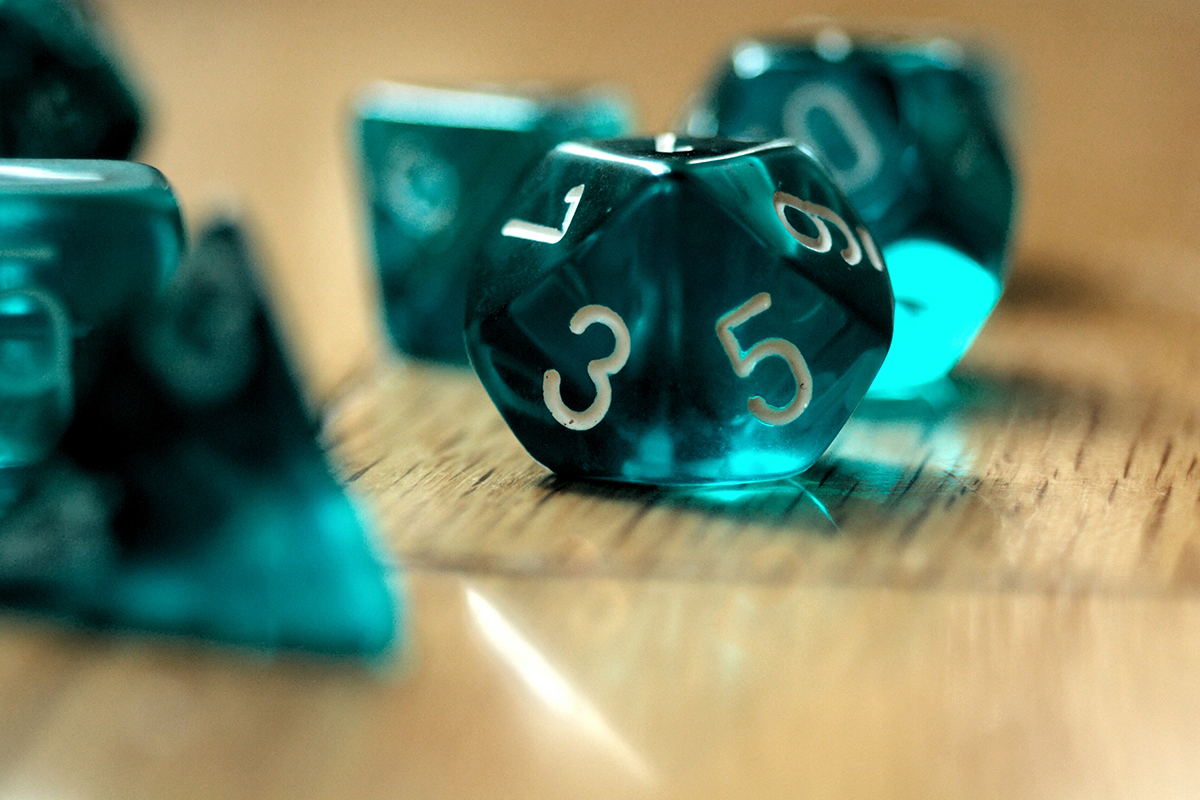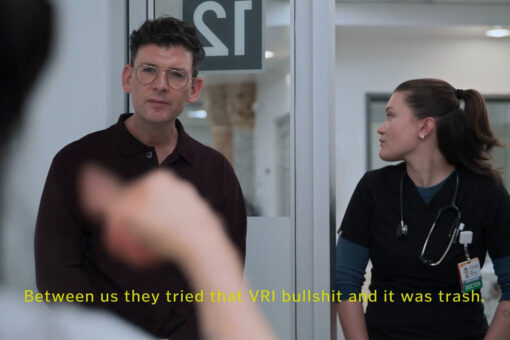I feel like my great-grandparents left an alarm somewhere in my DNA, one that goes off when Jews are threatened, no one else seems to notice, and we’re not welcome here. This year, that alarm started ringing about the very thing that is my job, my biggest artistic outlet, and one of my favorite things in the word: Dungeons and Dragons.
Dungeons and Dragons has gone from an obscure game for nerds to a cultural force represented in Stranger Things and Community. In the game, the Dungeon Master weaves an interactive tale that players can shape with their choices and the rolls of dice. You create a world and story of your very own, together with your friends over the course of many multi-hour sessions.
What’s tricky about that incredible storytelling experience is that its rules are owned by a big games company, Wizards of the Coast, a subsidiary of Hasbro. Wizards and its employees have created, published, and stewarded the game ever since 1997 when Wizards bought TSR, the publisher founded by D&D creator Gary Gygax. Every individual’s game of D&D is unique, but many draw from the characters, monsters, and settings published into the D&D canon by Wizards each year.
Apparently, that stewardship involves reinforcing the exclusive mindset of the nerds who created the game. Over the last year, Wizards of the Coast has continuously made harmful choices towards minority folk: the mistreatment of a non-binary Black employee, continuing to profit off an old adventure called “Oriental Adventures,” and purging a supplement from their creator marketplace that depicted queer sexualities while approving similarly suggestive illustrations in heteronormative settings.
Despite a massive influx of new, younger players demanding a more inclusive and accessible game, Wizards has continued to misstep. In June 2020, Wizards admitted it has reinforced “fantasy racism” and vowed to make changes to make it more flexible. Those changes, published in the supplement Tasha’s Cauldron of Everything in November 2020, amount to a suggestion that players ignore the rules previously laid out in the fundamental Players’ Guide and do whatever you want — laying the burden on players to fix a game that may reject them within its very text.
Among these ongoing failures, Wizards still has not even reckoned with appropriative and coded antisemitic themes that have endured since D&D’s creation in the ‘70s.
The first step of any D&D game is selecting the building blocks of your character from a list of fantasy “races,” one of which is “dwarf.” These dwarves were based on J.R.R. Tolkien’s creations, which Tolkien admitted were modeled after Jewish people in a 1964 BBC interview: “The Dwarves of course are quite obviously—wouldn’t you say that in many ways they remind you of the Jews? Their words are Semitic obviously, constructed to be Semitic.” Tolkien’s dwarves are stout, work with jewels, and are relegated to a secondary status. As he wrote in The Hobbit, “[D]warves are not heroes, but calculating folk with a great idea of the value of money; some are tricky and treacherous and pretty bad lots; some are not, but are decent enough people…if you don’t expect too much.” Not great.
The dwarves as we see them in D&D are pretty much the same as their portrayal in Tolkien’s work. It seemed so lifted that Tolkien Enterprises threatened TSR with a lawsuit, wanting the words dragon, dwarf, elf, ent, goblin, hobbit, orc, and warg removed from the game. In an interview with TheOneRing.net in 2000, Gygax said, “How did [The Hobbit] influence the D&D game? Whoa, plenty, of course.”
That tradition has not been examined at all in Wizards’ books, as dwarves in the most recent Players’ Handbook, published in 2014, “trac[e] their ancestry back to the founding of their most ancient strongholds in the youth of the world, and don’t abandon those traditions lightly” and “have a strong sense of justice, and they are slow to forget wrongs they have suffered.” Dwarves are written into this game as a race to pick if you don’t want to be the hero, a fantasy sidekick who will carry the humans and elves with shimmering blond hair once they’re done being grumpy and get over their own beliefs.
For a more explicit example of villainizing Jewish objects and folklore, take the Lich, a powerful being who has cheated death by becoming something unholy. Liches separate their souls from their bodies and put them in special places called a “phylacteries” so they can never die. I don’t know about you, but phylactery is a word I’ve only ever seen used as the English translation of the Jewish ritual object, tefillin. The phylactery is specifically described as “a charm or amulet, or repository used to store small parchments bearing holy scripture or arcane writings.” Sound familiar? Even stranger, the lich was created by Gygax, someone fascinated with historical religious study. He made the choice that an undead wizard king would keep his soul in something that Jews use for daily prayers. Recent editions backtrack from those origins, but Wizards has stuck with “phylactery.” They bury the Jewish coding of the lich, but much like the lich itself, allow it to live on.
The D&D ruleset also appropriates Jewish folklore by flattening out the golem. No longer is it the clay giant evoked by Jews to protect them from pogroms; the term has been ground down to any walking constructed figure. In the Monster Manual, a golem is only a crude beast that “has no ambitions, needs no sustenance, feels no pain, and knows no remorse” and “exists to follow its creator’s orders.” The erasure feels deliberate, reducing a cherished defender to an unthinking hulk to be a henchman for a sorcerer. And it’s not like complex stories of golems haven’t been written for a really, really, really long time.
Like most American media, Dungeons and Dragons assumes the world is Christian. Demons, angels, devils, churches, clerics, and crusades are omnipresent in D&D materials as well as fantasy media as a whole — so much so that many players don’t realize they’re using Christian ideas. It smacks of the same Christan-centrism when people are confused that you don’t celebrate Christmas.
Do I want every reference to Christianity to be purged from the game? Absolutely not. But I’d love it if phylactery was changed to “talisman,” and non-robot constructs were named something other than “golem.” Wizards of the Coast is a subsidiary of a massive company that will only move once someone loudly bangs on the door. The white, straight supremacy that lurk in Wizards’ books tell so many they are monsters and unwelcome. That contains an unspoken Christian supremacy, and Jews are told they are unwanted from the caricatures of their features, their religious objects, and their folklore.
I will not stop playing the game Dungeons and Dragons. The games and stories I’ve been running as my professional podcast and artistic creation, as well as time I cherish with my friends, has almost nothing to do with what is published. Although I have plenty of other roleplaying games I can and do love and play, I do not want to drop D&D; I refuse to let anyone push me off of a thing I love.
However, if Wizards wants to make a game for everyone, as they are slowly struggling to do, that includes purging the antisemitism instead of burying the coding and hoping no one will notice.



